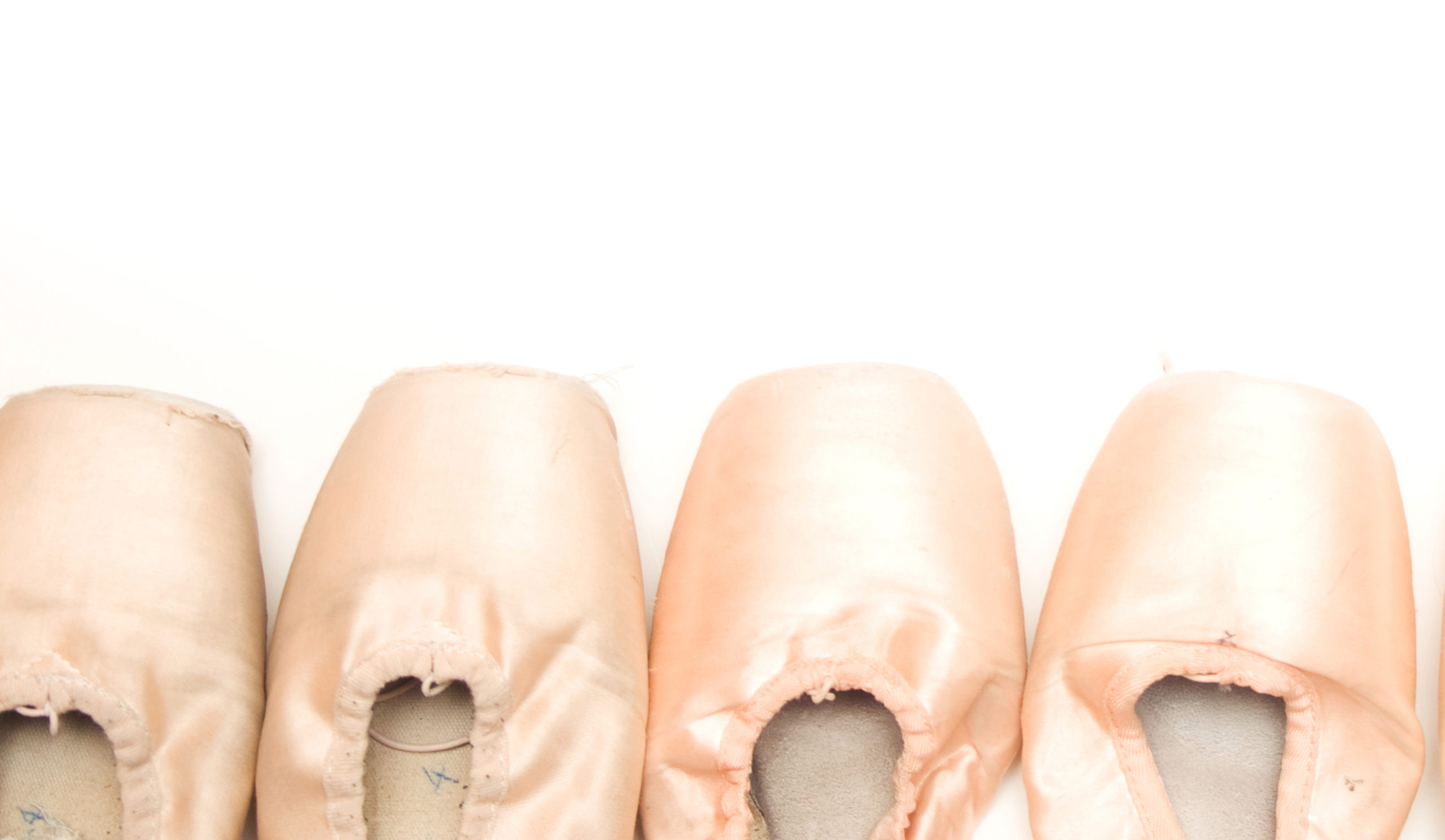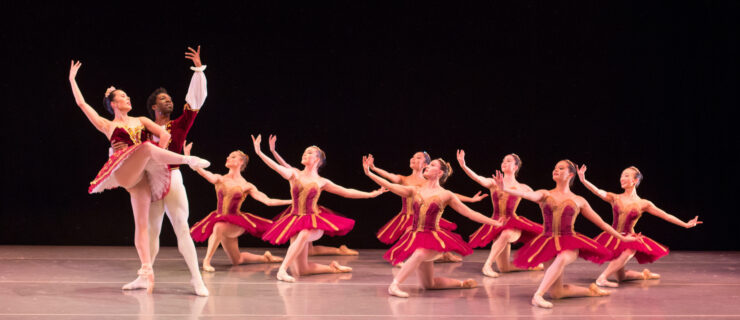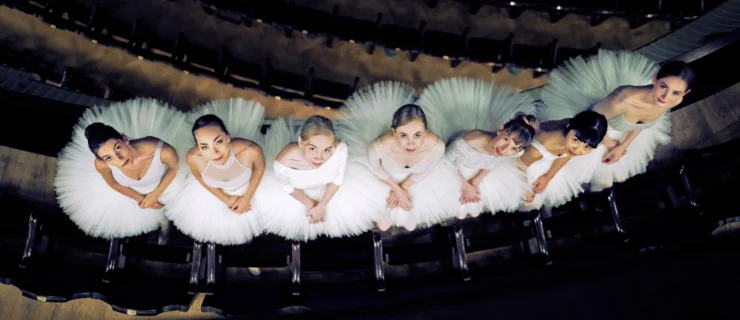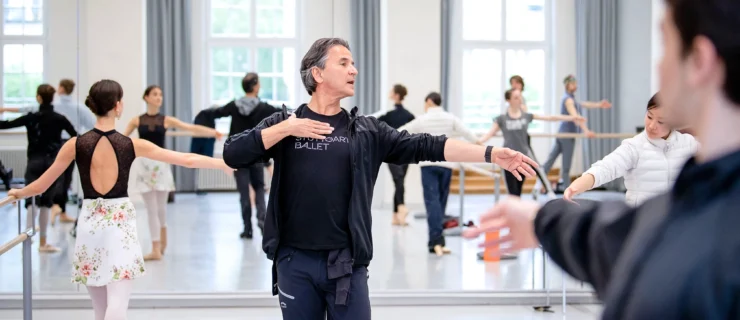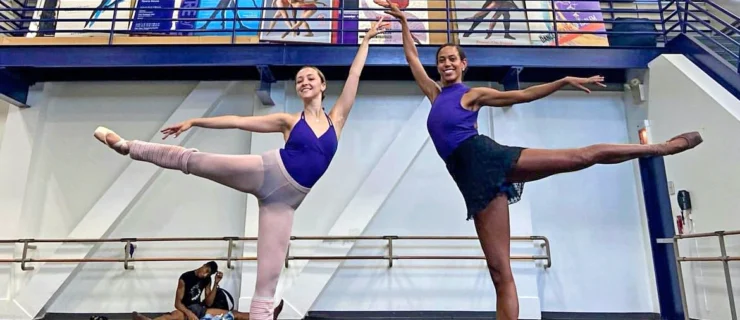Toe to Toe
I always dreamed of becoming a ballerina, but when I was young, those dreams were far from modest: Not only would I be a ballerina, but I decided I would be the greatest ballerina. I would be world-famous, dance on the biggest stages and partner with the best male dancers. Looking back, my optimism and naiveté seem almost endearing. While these big dreams planted a solid determination inside of me, my journey towards the top in the competitive ballet world was far more difficult than I’d envisioned.
As a young student, my ambitions were fairly tame. I envied the girls who could do more pirouettes than I could and those who moved up a level. But as I continued training as a teenager at the School of American Ballet, my competitiveness grew. We were all there with the same goal—to become apprentices with New York City Ballet. But only a few of us would make it. My worries over who could do the most turns turned into bigger anxieties: Who gets the most attention in class? Why is she getting better parts than me? How does she do that step so well? Who is getting interest from companies?
Looking back, competing with my classmates gave me the extra drive to push myself. I worked hard in every class and took everything seriously. After a year and a half, it paid off—I was offered an NYCB apprenticeship. I was thrilled to dive headfirst into the professional dance world as a member of one of the leading ballet companies.
Yet my first years with NYCB were very tough. I took every casting decision personally, convincing myself that someone else got a role because I wasn’t working hard enough or I had been eating too many cookies. I struggled with feelings of inadequacy. I was sure the audience preferred other dancers, positive I got the least applause.
Determined to prove that I was the best dancer, I decided I had to be better than everyone. I particularly remember one winter when I was one of many girls cast as Dewdrop in The Nutcracker. I wanted to perform the role flawlessly, but I kept struggling with a difficult set of turns. I was relentless, practicing them over and over. Then I started to obsess over how well the other dancers did the same steps.
My plan backfired. I’d put too much pressure on myself, and my inability to reach perfection morphed into stage fright. I didn’t trust my body to know what to do, or even if I had the strength I needed. Before shows, I pictured everything that could go wrong. I pictured the audience hating me. I pictured them wanting to see other dancers instead of me. What a horrible way to perform! My dancing, in turn, suffered. In trying to outdo everyone, I smothered my growth. I wasn’t able to simply dance. I couldn’t let go and be in the moment.
Ten years of performing regularly has since given me many valuable insights. First, we are all here because we love to dance. Each of us strives for a perfection that will always be just beyond our grasp. We worry about our bodies. We analyze every ache and pain. We are insecure, yet we must maintain a certain level of confidence to be able to perform for thousands of people. We all want to dance as much as possible, yet we have to understand that we can’t dance everything.
It’s still a learning process. Lately, I’ve been working to accept my dancing and its flaws, and to use my time onstage to reward myself. In performance, I try to let myself simply enjoy the benefits of many hours of hard work. I’m able to grasp the concept that I may not be right for every role, but I have my own strengths to bring to the stage.
Now I am working on learning from my colleagues instead of comparing myself to them. I love watching Wendy Whelan and Jenifer Ringer, two of NYCB’s most experienced principals, because their artistry comes from such an honest place. They don’t try to dance like anybody else or please anyone. They are comfortable with their own dancing. I constantly gain inspiration and steal things I like from their performances, but I also have to remind myself that even they have their own strengths and weaknesses.
I love being onstage again. I love the exhilaration of a great performance. I’ve learned that my fiercest competitor and harshest critic is the one in the mirror. That’s who must be satisfied. That’s who must be happy.
Abi Stafford is a principal at New York City Ballet.
